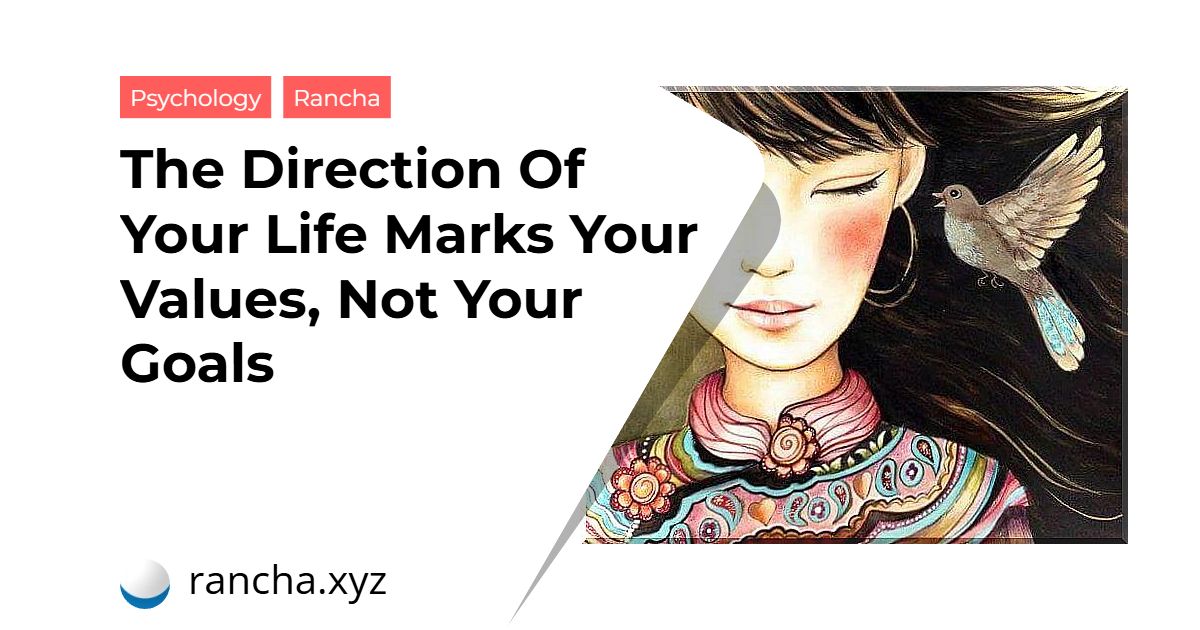What mark would you like to leave when it’s all over? Sometimes we may feel that we are not in control. It seems that we are a big bus following the indications of the passengers that accompany us on the trip. We make decisions that people around us recommend and we end up taking streets that go in a direction very different from our values.
We carry a backpack of insecurities that weighs more and more, leaving our valuables in the gutter. As a result, we are not aware that time passes extremely quickly and that it is not always possible to take a step back.
We take paths that don’t take us, don’t convince us and put pressure on us. Paths that outsiders indicate to us, insistently repeat that they are the ones we should follow under the convincing phrases “it ‘s for your good ”, “ believe me, it’s the right thing ” or “ now it’s up to you ”. Then one day you realize you’re driving without your hands on the wheel.
Values are directions in life
To begin with, a value is not an outcome in itself, it is not a goal. Values define the words you will use to shape your life’s argument: acceptance, persistence, order, conformity, fairness, or intimacy. A long list of directions that allow you to decide which goals are the ones that really matter.
Therefore, a valuable life is the result of acting in the service of what you truly value. The problem is that we often don’t know how to identify what these values are and what relationship they have with the areas of our life. There are nine main areas that make up our life: family relationships, intimate or loving relationships, social relationships, work, education, leisure, spirituality, citizenship and health.

We assign a level of importance to each area and in each one we act differently to solve the obstacles that arise. However, the problem is that often the solutions we implement do not coincide with our principles. That’s why we do things we regret or block when making decisions. All of this makes us feel overwhelmed, drained or lost.
Untimely lamentations
Bronnie Ware, a Canadian nurse, has compiled over the past few years the regrets of her patients in the palliative care unit. A later article published by the Harvard Business Review confirmed this: there are 5 common laments that recur in people who are about to die:
- I wish I had lived a life true to myself and not what others wanted.
- I wish I hadn’t worked so hard and enjoyed more time with my family.
- I wish I had the courage to express my feelings.
- I should have had more contact with my friends.
- I wish I had been happier.
People regret letting go of the reins of their lives, not having spent enough time with their loved ones, not expressing themselves to avoid conflict with others, or being afraid. We get stuck in a mediocre conformism. We get stuck in this rut and let go of the time and effort that what really matters deserves.
Happiness is a choice, the fear of change binds us to habits that don’t give us satisfaction. We spend more time making others believe we are happy than actually being happy.
you choose where to go
Think that the key is to overcome this frustration, find our values and set goals that make sense of the paths we choose. Psychology professionals help people move from speech to action. The first step is to identify your values and hierarchy in terms of where you are in life.
From there, it is important to set short-term and long-term goals. In other words, the values will form the pillars on which we will set goals over time. Goals that really give us meaning and with which we will have the opportunity to surpass ourselves and to feel comfortable.
Later we will plan and put these goals into action. This is the scariest part because of the difficulties we anticipate. Making changes brings us insecurity and we want to run away to avoid having to face them. In psychology, we work throughout the process to overcome obstacles and barriers. Think that there is no greater well-being than that achieved through your own choices.
 rancha.xyz Be free to choose their own route to self-knowledge, health and balance of body and soul.
rancha.xyz Be free to choose their own route to self-knowledge, health and balance of body and soul.




